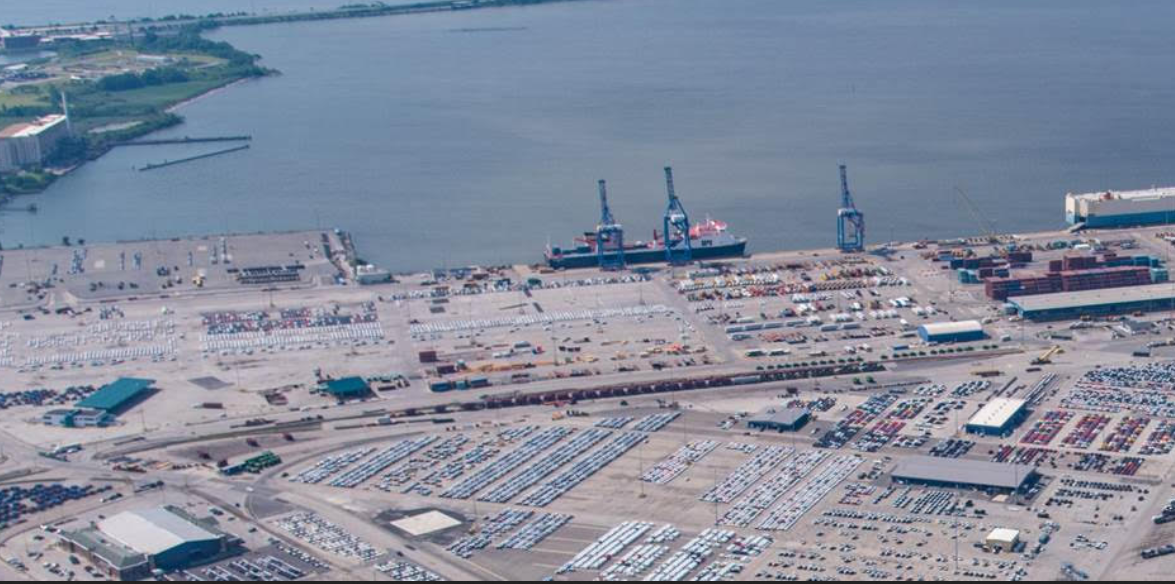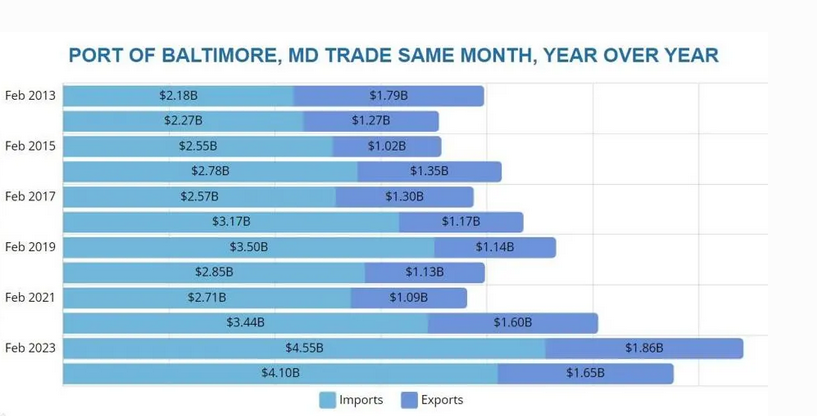
The Port of Baltimore, a vital hub on the Eastern Seaboard, is grappling with significant economic losses following the collapse of the Francis Scott Key Bridge late last month. This disruption is poised to result in a staggering decline of at least $6.5 billion in export-import trade for the month of April.
Based on data from the U.S. Census Bureau, the port managed $6.8 billion in two-way trade just last April. However, figures for this April won’t be available until early June, leaving the extent of the damage to be fully assessed.

Baltimore, known for its rapid growth and pivotal role in both imports and exports, faces a daunting challenge in restoring its operations. The hope is to reopen the channel by the end of the month, as reported by the Associated Press. However, even if achieved, the repercussions will reverberate far beyond the immediate trade figures.
The container ship Dali, which collided with the bridge, has caused substantial obstruction, compounded by debris from the collapsed bridge itself. Clearance efforts are underway, but full restoration is unlikely in the near term, with early estimates suggesting a potential timeline of several years.
The economic fallout extends beyond the port, affecting logistics companies and their extensive workforce, along with numerous service providers. This ripple effect encompasses a broad spectrum, impacting businesses and employees reliant on the seamless functioning of these sectors.
The Port of Baltimore, having surpassed $80 billion in annual trade in recent years, was already experiencing a downturn in 2024. Recent Census data indicates a notable decrease of 10.56% in total exports and imports for the first two months of the year.
The import sector witnessed significant declines, particularly in self-propelled construction equipment and radioactive elements. Conversely, passenger vehicles, a key import category, saw a slight increase.
On the export front, declines were observed in categories such as liquid natural gas and passenger vehicles. These challenges underscore the complexities and vulnerabilities inherent in global trade, requiring strategic measures to mitigate disruptions and safeguard economic stability.
Sources:Forbes
…………….

